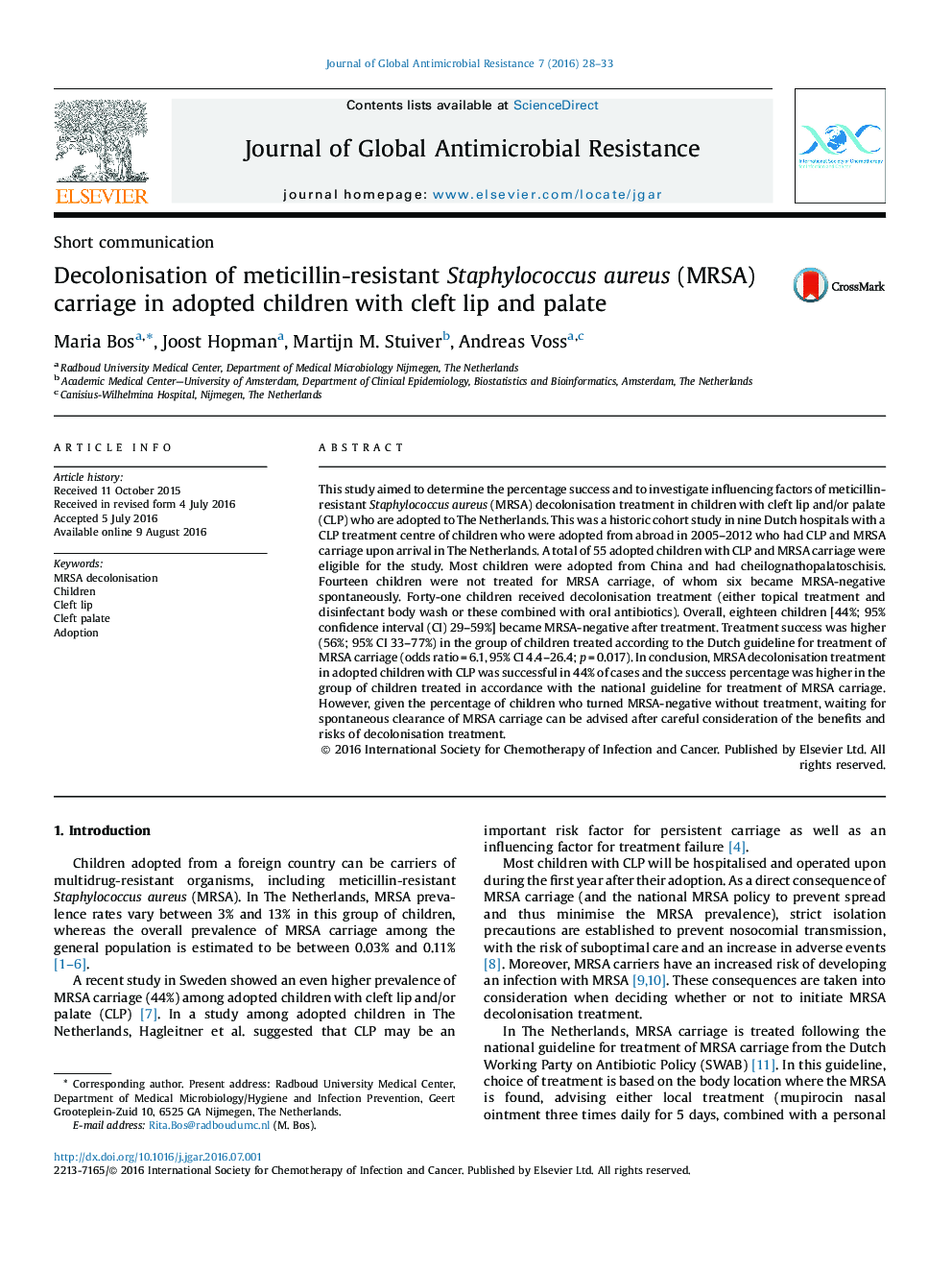| Article ID | Journal | Published Year | Pages | File Type |
|---|---|---|---|---|
| 3405579 | Journal of Global Antimicrobial Resistance | 2016 | 6 Pages |
•Retrospective study of 55 adopted children with cleft lip and/or palate and MRSA carriage.•Fourteen children did not receive treatment, of whom six (43%) had spontaneous clearance of MRSA.•Decolonisation treatment was started in 41 children (75%).•Success rate of decolonisation treatment was 44–56% depending on choice of treatment.•Waiting for spontaneous clearance can be an acceptable strategy.
This study aimed to determine the percentage success and to investigate influencing factors of meticillin-resistant Staphylococcus aureus (MRSA) decolonisation treatment in children with cleft lip and/or palate (CLP) who are adopted to The Netherlands. This was a historic cohort study in nine Dutch hospitals with a CLP treatment centre of children who were adopted from abroad in 2005–2012 who had CLP and MRSA carriage upon arrival in The Netherlands. A total of 55 adopted children with CLP and MRSA carriage were eligible for the study. Most children were adopted from China and had cheilognathopalatoschisis. Fourteen children were not treated for MRSA carriage, of whom six became MRSA-negative spontaneously. Forty-one children received decolonisation treatment (either topical treatment and disinfectant body wash or these combined with oral antibiotics). Overall, eighteen children [44%; 95% confidence interval (CI) 29–59%] became MRSA-negative after treatment. Treatment success was higher (56%; 95% CI 33–77%) in the group of children treated according to the Dutch guideline for treatment of MRSA carriage (odds ratio = 6.1, 95% CI 4.4–26.4; p = 0.017). In conclusion, MRSA decolonisation treatment in adopted children with CLP was successful in 44% of cases and the success percentage was higher in the group of children treated in accordance with the national guideline for treatment of MRSA carriage. However, given the percentage of children who turned MRSA-negative without treatment, waiting for spontaneous clearance of MRSA carriage can be advised after careful consideration of the benefits and risks of decolonisation treatment.
